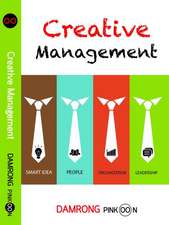Strategy, Economic Organization, and the Knowledge Economy: The Coordination of Firms and Resources
Autor Nicolai J. Fossen Limba Engleză Paperback – 29 iun 2006
| Toate formatele și edițiile | Preț | Express |
|---|---|---|
| Paperback (1) | 358.63 lei 31-37 zile | |
| OUP OXFORD – 29 iun 2006 | 358.63 lei 31-37 zile | |
| Hardback (1) | 366.43 lei 31-37 zile | |
| OUP OXFORD – 3 feb 2005 | 366.43 lei 31-37 zile |
Preț: 358.63 lei
Preț vechi: 493.70 lei
-27% Nou
Puncte Express: 538
Preț estimativ în valută:
68.62€ • 71.91$ • 56.73£
68.62€ • 71.91$ • 56.73£
Carte tipărită la comandă
Livrare economică 01-07 aprilie
Preluare comenzi: 021 569.72.76
Specificații
ISBN-13: 9780199205325
ISBN-10: 0199205329
Pagini: 296
Ilustrații: 10 tables, 4 figures
Dimensiuni: 160 x 235 x 20 mm
Greutate: 0.49 kg
Editura: OUP OXFORD
Colecția OUP Oxford
Locul publicării:Oxford, United Kingdom
ISBN-10: 0199205329
Pagini: 296
Ilustrații: 10 tables, 4 figures
Dimensiuni: 160 x 235 x 20 mm
Greutate: 0.49 kg
Editura: OUP OXFORD
Colecția OUP Oxford
Locul publicării:Oxford, United Kingdom
Recenzii
Review from previous edition Nicolai Foss brings critical and integrative insights to organizations and management. Those interested in understanding new developments in strategic management will find this book compelling.
A thought-provoking effort at integrating organizational economics and business strategy, based on an unusually profound knowledge and respect for both research traditions. A precious contribution to the development of an emerging new field of study between economics and management.
This book is timely. The role of knowledge in the modern economy has been the subject of considerable woolly thinking. Nicolai Foss brings to the area an economist's clarity of thought together with a remarkable breadth of scholarship. The result is a substantial contribution to our understanding of organizational theory, the theory of the firm, and the nature of business strategy.
With a keen eye, Nicolai Foss scrutinizes the foundations of the knowledge-based theory of the firm, offering an analysis that is at once critical and constructive. This will be an essential book for anyone working at the cross-roads of organizational economics and strategy.
A thought-provoking effort at integrating organizational economics and business strategy, based on an unusually profound knowledge and respect for both research traditions. A precious contribution to the development of an emerging new field of study between economics and management.
This book is timely. The role of knowledge in the modern economy has been the subject of considerable woolly thinking. Nicolai Foss brings to the area an economist's clarity of thought together with a remarkable breadth of scholarship. The result is a substantial contribution to our understanding of organizational theory, the theory of the firm, and the nature of business strategy.
With a keen eye, Nicolai Foss scrutinizes the foundations of the knowledge-based theory of the firm, offering an analysis that is at once critical and constructive. This will be an essential book for anyone working at the cross-roads of organizational economics and strategy.
Notă biografică
Nicolai J. Foss is Professor of Economic Organization at the Copenhagen Business School. He is author or editor of numerous books, including Governance, Competence, and Entrepreneurship: Advances in Economic Strategy Research (edited with Volker Mahnke, OUP, 2000) and Resources, Firms, and Strategy: A Reader in the Resource-Based Perspective (OUP, 1997).











